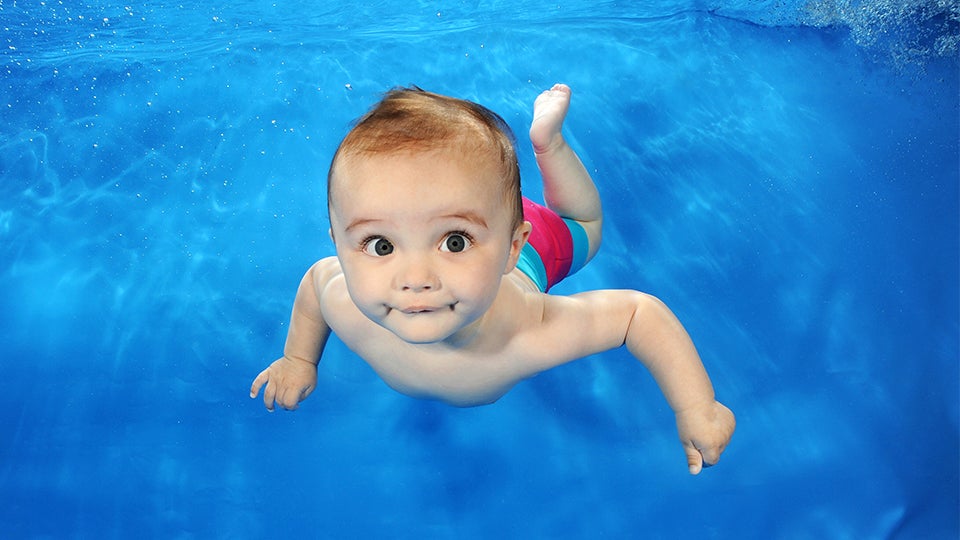Ready to start swimming?
Drowning is the third leading cause of accidental death worldwide. [1] That’s why learning to swim is crucial to keeping ourselves and our children safe.
And we understand that it might seem scary to take your baby swimming from birth. But it really is the best time to start. You might be thinking, how is my little one able to go underwater and not inhale any water? What actually happens?
We all know that drowning happens when water enters the lungs, stopping the supply of oxygen.
But your little one is born with a reflex called the ‘laryngeal reflex’, or ‘gag reflex’. This kicks into action when your baby feels water on their face, nose or throat. When your baby goes underwater, the soft tissue at the back of their throat (called the larynx) closes to block the entrance to the airway.
And it’s at its peak in their first 6 months. But this doesn’t mean that babies can be suddenly submerged without warning. That’s why, from the get-go, we use the question "Name, Are you ready? Go" to build up the association with this phrase and going underwater, so that your little one is always in control. We never swim your baby unless we’re absolutely sure that they are happy to go underwater. If they’re hiccuping, sleeping, crying or seem generally resistant, they’ll stay on the surface.
Using your little one’s natural reflexes from an early age and preparing them to go under the water through word association means it quickly becomes a learned response.

But why do they sometimes cough or splutter after their first underwater swim?
Don’t worry, this is absolutely normal. It means that your baby’s natural reflexes are working to clear the fluid from the back of their throat and stop water entering their lungs. Sometimes, the involuntary spasm carries on a little longer.
Keeping your baby safe
The most common reasons for drowning are not being able to swim and panicking in the water. But the good news is that together, we can prevent horrible things like this happening. Teaching your little one how to swim from birth is one of the best things you can do. Getting them started early means that they’ll become confident around water, so if they ever do fall in, they’ll be able to keep themselves safe and not panic.
After the first 6 months, the gag reflex does start to fade, so we teach your baby all about breath control. As our lessons progress, you'll be amazed at how good your little one is at responding to both verbal and non-verbal cues. Ultimately, they'll learn to breathe out while they're underwater, which we believe gives them real empowerment and a sense of being fully in control. It's also a great foundation in 'aquatic breathing', which is essential as they progress to become independent little swimmers.
Sources
[1] Drowning, World Health Organisation, https://www.who.int/news-room/fact-sheets/detail/drowning, 15 January 2018